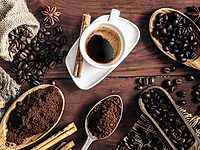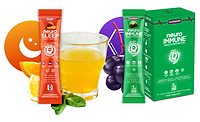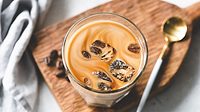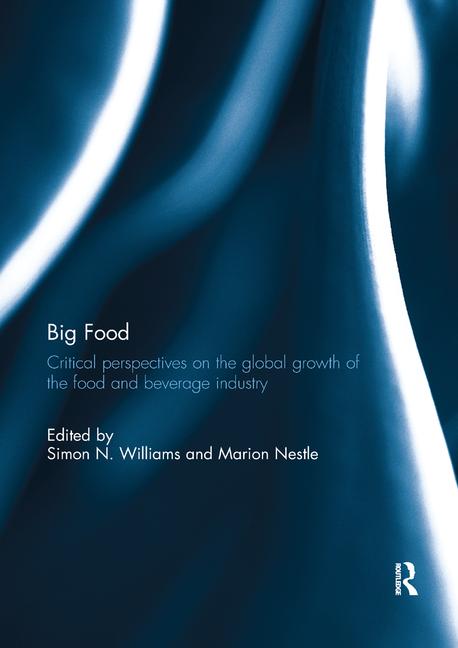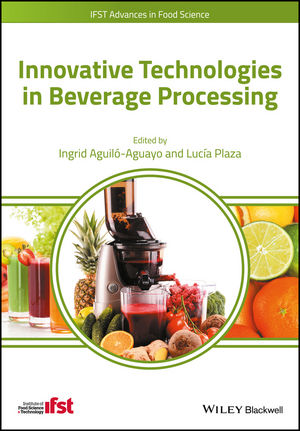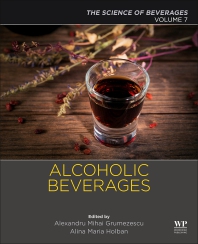Consumer focus on prevention over cure driving immune support ingredients
Biotic ingredients, vitamins aid beverage formulations

Image courtesy of Getty Images
In 2001, “Osmosis Jones” entertained families with its mixture of live-action/animated action as it told the story of zookeeper Frank DeTorri who overeats unhealthy foods and abandons basic hygiene. Inside Frank’s body, known as the City of Frank, white blood cell Osmosis “Ozzy” Jones is working overtime trying to catch the germs affecting Frank’s body.
Although consumers haven’t humanized their white blood cells and germs, their focus on immune health in recent years shows that they want their own victorious story as they take a proactive approach to health and wellness.
“Consumers have settled into their post-pandemic ways of life and are thinking about their immune health more frequently and more intentionally than they have in the past,” says Maria Stanieich, marketing manager at Kyowa Hakko USA, New York. “This is pushing people to seek out products they can use every day to proactively support immune health.”
Stanieich adds that Kyowa Hakko USA published a consumer insights study on the topic, which surveyed 1,000 U.S. consumers who use or are interested in immune health products.
“When we asked them about the types of products they’re currently using to support their immune health compared to five years ago, a little over half (52%) said they are using foods and beverages,” she explains. “Even those who are not currently using these products said they are likely to start in the next few months.”
Randy Kreienbrink, certified food scientist at Artemis International, Fort Wayne, Ind., also highlights how consumers’ interest in immune health has proliferated following the pandemic. This has had a strong impact on the beverage market, he notes.
“While as a society we have moved into a different phase of living with COVID and its variants, increased awareness of immune system function continues to shape the beverage industry in significant ways,” Kreienbrink says. “Consumers are actively seeking out beverages with functional benefits, particularly those geared towards boosting immunity.
“Ingredient identity is growing as shoppers read labels more closely and carefully, looking for recognizable, science-backed ingredients with proven efficacy,” he continues. “Offering immune support is increasing with premium value-added beverages. Consumers are willing to spend more on beverages perceived as healthier.”
Vaughn DuBow, senior director of product portfolio marketing of health and wellness at ADM, Chicago, cites FMCG Gurus “Top Trends for 2024” report, which notes that 63% of consumers are taking a proactive approach to health by focusing on prevention versus a cure. He adds that this is prompting consumers to stay active and healthy and that immune function is a key aspect of that.
DuBow also highlights the positive impact it is having on beverage formulations.
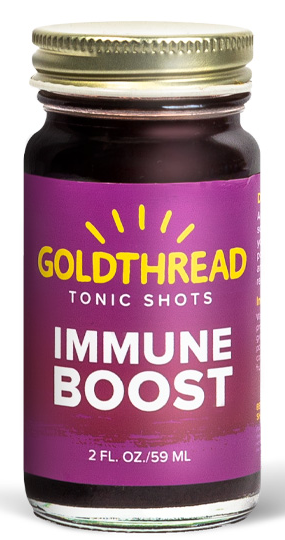
“This emphasis on immune function to support longevity is pushing consumers’ toward products and ingredients they may associate with immune health,” DuBow says. “Concurrently, interest in immune function support has positively impacted the beverage sector, as beverages can provide a multitude of health-forward options in convenient formats. Think of a citrus-flavored stick pack containing vitamin C or a functional beverage shot containing ginger or turmeric, black pepper or cayenne and citrus, all of which are associated with antioxidants and anti-inflammatory properties.
“As research into various functional ingredients grows, we will continue to see an uptick in functional beverage innovation that can address ongoing demand for immune health support,” he continues. “Whether in a ready-to-drink (RTD) tea with botanical extracts containing key vitamins and minerals or a carbonated drink with prebiotics or probiotics, we foresee innovative new product development (NPD) flourishing.”
Also citing a 2024 FMCG Gurus global survey, Joana Carneiro-Wakefield, Ph.D., CEO at NutriLeads, Wageningen, The Netherlands, notes that improving immunity is a Top 5 health priority for consumers. However, she adds that this is coming from the roots of basic nutrition.
“More consumers are adopting a more holistic approach to their overall health and say they are more focused on a back-to-basics approach to nutrition,” Carneiro-Wakefield says. “There is a higher demand for food, beverages and dietary supplements with multifunctional benefits and consumers also value clinically validated product claims. In fact, FMCG Gurus found that 78% of global consumers are more likely to purchase immune-supporting products if product efficacy claims are supported by science.
“For beverage companies, choosing all-natural ingredients that are clinically proven to deliver multiple health benefits has never been more important,” she continues. “These functional ingredients can help grow beverage sales and create brand equity.”
Carneiro-Wakefield notes that immune-support attributes has influenced innovation throughout the beverage market.
“According to Innova Market Insights, immunity was driving new product launches for several years before COVID,” she says. “Global launches of beverages with an immune health claim grew by 9% in the juice category, 43% in flavored bottled waters, and 32% in energy drinks between 2016-2019.
“What we’re seeing now is strong interest in both immune and gut health, as consumers increasingly recognize the interconnected relationship between them,” Carneiro-Wakefield continues. “In its ‘Top Ten Trends for 2024,’ FMCG Gurus reported that many consumers recognize the link between the gut and immunity, as well as the importance of beneficial bacteria to the digestive system. In addition, eight in 10 consumers want clinically proven immune-support products with multifunctional benefits.”
Going to the source
For beverage-makers and ultimately consumers, there is no shortage of solutions that can support a functioning immune system.
“Vitamins and minerals are among the most sought-after solutions in products targeting immune support,” ADM’s DuBow notes. “This includes vitamin C, as well as A, D and E. Coming to the forefront now are botanical and plant-derived extracts that can provide vitamins, minerals and phytonutrients, including antioxidants. These extracts are checking boxes for consumers on both wellness benefits, as well as on-trend familiar, deemed ‘closer-to-nature’ ingredients that can support clean labels.”
DuBow calls attention to ADM’s acerola powder, which contains vitamin C, as a solution for bottled and compressed juices and powders. Additionally, the company’s plant-derived vitamin E, Novatol, can contribute to the protection of cells from oxidative stress, he says.
Yet, vitamins are not the only source of immune support that formulators can tap today. DuBow notes that more attention is being drawn between digestive health and the immune system.
“Garnering traction now is the connection between the gut and immune system support, as it’s generally recognized that 70% of the immune system resides in the gut,” he says. “With that, microbiome-supporting solutions, including prebiotics, probiotics and postbiotics, are increasingly capturing health-conscious consumers’ attention and inspiring beverage makers to seek new ways to incorporate these solutions into NPD.”
Prebiotic dietary fibers, like ADM/Matsutani LLC’s Fibersol, can help support microbes growth in the gut that are positively associated with health, DuBow says citing 2018 and 2022 research.
“On top of that, a recent study published in 2022 shows that, at 3.75 grams per serving, Fibersol may help nourish the intestinal flora and support the intestinal tract environment,” he says.
NutriLeads BV’s Carneiro-Wakefield highlight’s the company’s Benicaros, a precision prebiotic, as a solution for immune health.
“This natural precision prebiotic ingredient from upcycled carrot pomace both trains smarter, faster and stronger immune responses and increases beneficial gut micro-organisms that play a crucial role in a resilient gut ecosystem,” Carneiro-Wakefield says. “A randomized, double-blind placebo-controlled study of 146 healthy human subjects demonstrated that Benicaros accelerated immune responses in subjects who were challenged with a common cold virus. In comparison to the placebo group, Benicaros significantly reduced the severity and duration of symptoms, while helping maintain quality of life.
“Additional peer-reviewed clinical and preclinical research demonstrate that Benicaros overcomes differences in individual gut microbiota composition to consistently increase beneficial gut bacteria present in most people,” she continues. “It significantly increases production of short-chain fatty acids ― notably acetate, propionate and butyrate ― that are essential to cultivating a resilient gut ecosystem.”
Artemis International’s Kreienbrink explains that with the rise in health-forward beverages, the company has seen more interest in its ElderCraft European Black Elderberry line.
“ElderCraft was already well-known for its ability to reduce the duration and intensity of influenza and respiratory illnesses, but a recent study revealed its robust role in gut health as a prebiotic,” he says. “ElderCraft increases the abundance of the beneficial bacteria Akkermansia, Bifidobacteria and Lactobacilli and should be strongly considered for a gut health-pre-probiotic beverage.”
Kyowa Hakko USA’s Stanieich also points to the connection between digestive health and immune health, but in a postbiotics capacity.
“[I]n the past few decades, we’ve learned a tremendous amount about the connection between the activity in the gut and the overall immune system,” she says. “IMMUSE is a cutting-edge postbiotic (non-viable bacteria) that strengthens the body’s defense system by directly activating pDCs, which are mainly located in the small intestine. Backed by over 30 research studies, including 15 human clinical trials, IMMUSE is the first food, beverage, and dietary supplement ingredient shown to provide more comprehensive immune support across both innate and adaptive immunity.”
Stanieich notes that Kyowa Hakko USA recently partnered with the brand Encore to help launch its Encore Collagen Mix, a ready-to-mix beverage that contains ingredients for skin health, gut health, and immune health.
“As more consumers become aware of the connection between strong gut health and immune health, they turn to biotics –– specifically a postbiotic like IMMUSE –– to activate immune functions at the cellular level for a more comprehensive immune response,” she says.
ADM’s DuBow adds that the complementary properties of biotic solutions can serve beverage-makers.
“[B]ecause they are complementary to each other, combining prebiotics with probiotics and postbiotics can help build tailored wellness products, including for immune function,” he says. “A range of functional beverages, including sparkling beverages, stick packs and RTD teas and shakes, are advantageous to this inclusion, and we anticipate an uptick in combinations of biotics, as well as botanical extracts in these formats.”
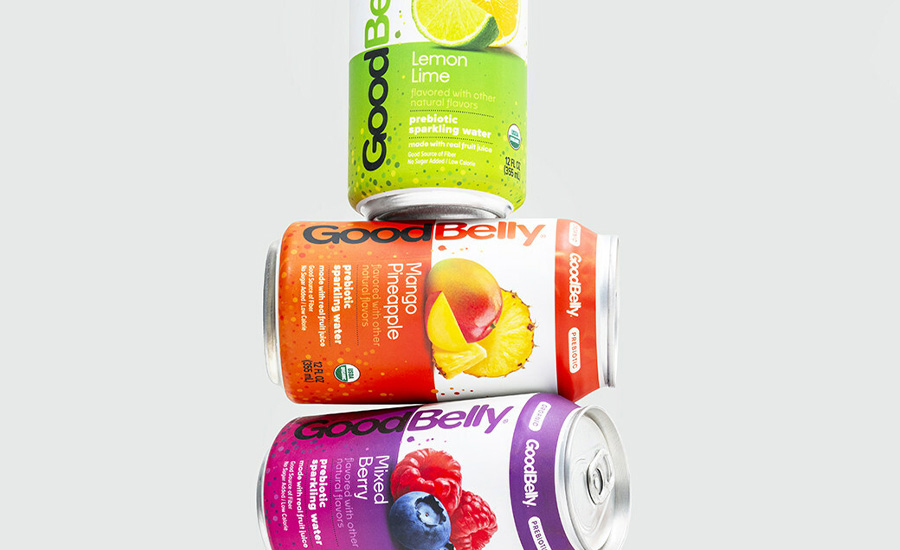
Delivering on function and taste
As beverage-makers explore the host of immune health solutions available to them, experts also stress the importance of formulators engaging with consumers.
“First and foremost, beverage-makers must ensure they are communicating the efficacy and credibility of the ingredients that power their products, as well as their mode of activation,” Kyowa Hakko USA’s Stanieich says. “IMMUSE is an immune activator differentiated by its unique mechanism, which activates plasmacytoid dendritic cells (pDCs), the leader of the immune system. Its effectiveness is supported by over 30 research studies and 15 human trials.
“Along with functional claims, beverage brands win when they tap into their consumers’ mindset,” she continues. “There are specific occasions where immune-supporting beverages are primed to fulfill real-world needs. Through our consumer research, we found these specific moments are those that make consumers think about getting sick. Unsurprisingly, being around someone who is coughing or sneezing is the top occasion. But there are also moments like being in large crowds, using public transportation, and touching a doorknob that are prompting people to think about their immunity.”
Despite the importance of efficacy and credibility, ingredient suppliers also remind beverage-makers that taste still is king for consumers.
“When developing immune-support beverages with broad consumer appeal, manufacturers would do well to focus on three basics: science, taste and convenience,” NutriLeads BV’s Carneiro-Wakefield says. “The drink should include natural, clinically proven ingredients that inspire consumer confidence. It must taste good, with no unpleasant after-taste. And the beverage should be designed for anytime, anywhere convenience. Examples include functional beverage shots, ready-to-drink bottles and cans, and single-serving powdered drink packets. It’s crucial to identify ingredients that help achieve all three goals.”
Artemis International’s Kreienbrink also points to the importance of taste, but notes communication and honesty also will help beverage-makers engage with consumers.
“Transparency is key. Be honest and upfront about the presence and benefits of immune-supporting ingredients on product labels and marketing materials,” Kreienbrink says. “Solid scientific substantiation is also helpful. Clinical research findings, explained in plain language that consumers can easily understand, can help build consumer trust and confidence. But bear in mind that taste still matters.
“Functional benefits can’t compromise on taste, because palatability remains a key driver of purchase decisions,” he continues. “In other words, to captivate consumers, functional beverages still have to look, taste and smell good. Also, containers should be easy to use and fit seamlessly into consumers’ busy lifestyles.”
Looking for a reprint of this article?
From high-res PDFs to custom plaques, order your copy today!




